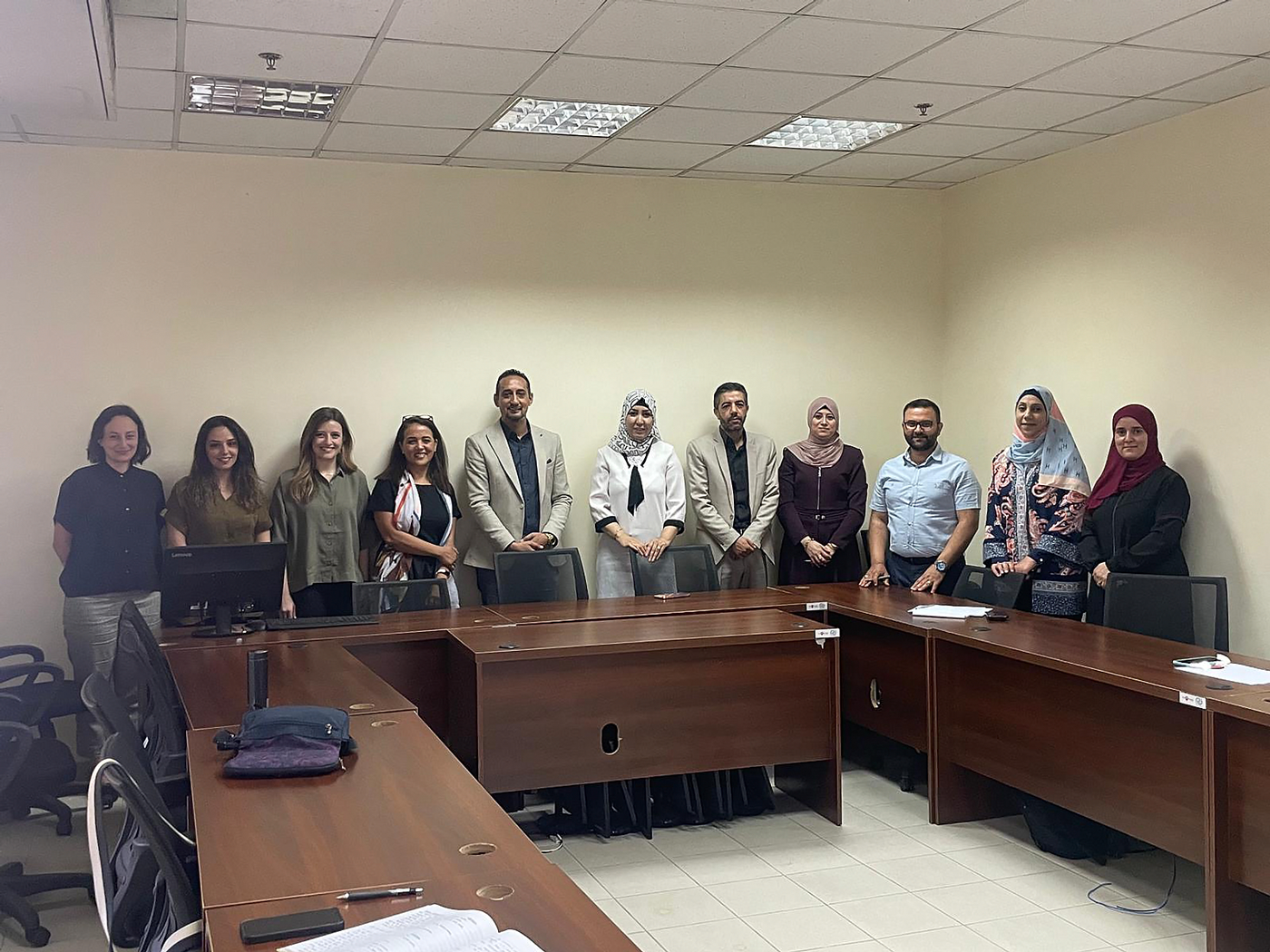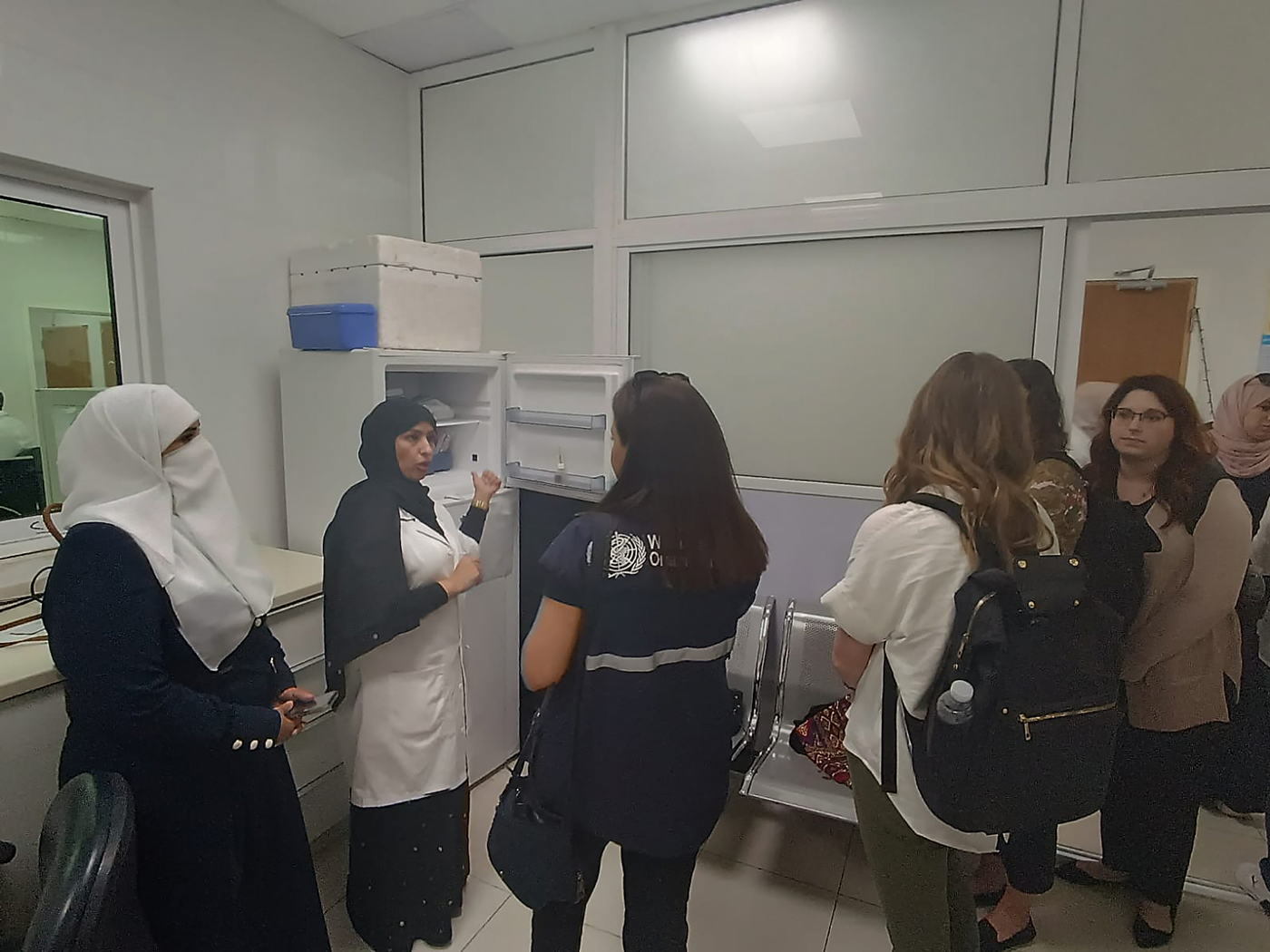 Participants in the joint assessment mission in Jordan. Jordan, 16 August 2022 – The Infectious Hazard Prevention (IHP) programme at the WHO Regional Office for the Eastern Mediterranean, in collaboration with the United States Centers for Disease Control and Prevention (CDC) Influenza Division in Atlanta conducted a joint assessment mission in Jordan.
Participants in the joint assessment mission in Jordan. Jordan, 16 August 2022 – The Infectious Hazard Prevention (IHP) programme at the WHO Regional Office for the Eastern Mediterranean, in collaboration with the United States Centers for Disease Control and Prevention (CDC) Influenza Division in Atlanta conducted a joint assessment mission in Jordan.
As COVID-19 pandemic cases decrease in many parts of the world, it is an opportune time to assess the sentinel influenza surveillance system and evaluate its value and ability to capture epidemiological and virological data beyond influenza, such as severe acute respiratory syndrome coronavirus-2 (SARS-CoV2) and other respiratory viruses. In this regard, there are new tools available on influenza surveillance capacity assessment that incorporate SARS-CoV-2 and other respiratory viruses.
The objectives of the assessment mission were to highlight strengths, identify weaknesses and areas for improvement and propose recommendations to enhance the national integrated sentinel surveillance system in Jordan using the new tools.
Meetings and field visits
The mission members conducted consultative meetings with national teams at the Jordanian Ministry of Health and the National Influenza Centre. Both epidemiological and virological data were reviewed thoroughly and the need for implementing performance indicators was highlighted.
 Mission members during a field visit.
Mission members during a field visit.
Field visits were also organized to sites for severe acute respiratory infections (SARIs) and influenza-like illness (ILI) surveillance by mission members accompanied by the Ministry of Health team and WHO staff. In addition, the National Influenza Centre was visited and the importance of laboratory technical capacity while ensuring the most efficient use of resources in adopting the integration approach was discussed.
The data management component was also discussed with surveillance teams from the Ministry or Health and National Influenza Centre.
They also discussed the importance of adopting an electronic reporting system as Jordan currently uses a paper-based reporting system for sentinel surveillance.
The Ministry of Health are considering using WHO’s regional platform Eastern Mediterranean Flu (EMFLU) in parallel in preparation for the implementation of a national information system as timely data capturing, analysis, and reporting of multi-pathogen data are crucial for prompt response measures at country level. By adopting an electronic reporting system, countries can rapidly identify and monitor changes of current circulating respiratory viruses in individuals at increased risk of severe disease, as well as assess changes associated with the emergence of different viruses with epidemic and pandemic potential.
The IHP programme aims to conduct similar assessment missions to support other countries in the Region as a way of operationalizing the regional framework for the integrated surveillance for influenza and other respiratory viruses with epidemic and pandemic potential.


